The Binding of Isaac is one of the all-time greatest roguelikes out there. The premise of scouring dungeons in search of godly items to overcome run-ending bosses is as fresh today as it was when it launched back in 2011.
But what should you play after you’ve got the illustrious Platinum God achievement? These are the games I recommend to fellow roguelike and roguelike-adjacent fans.
Or, if you’re more of a Celeste player, we’ve got a rundown of what games like Celeste are worth checking out, too.
Enter the Gungeon
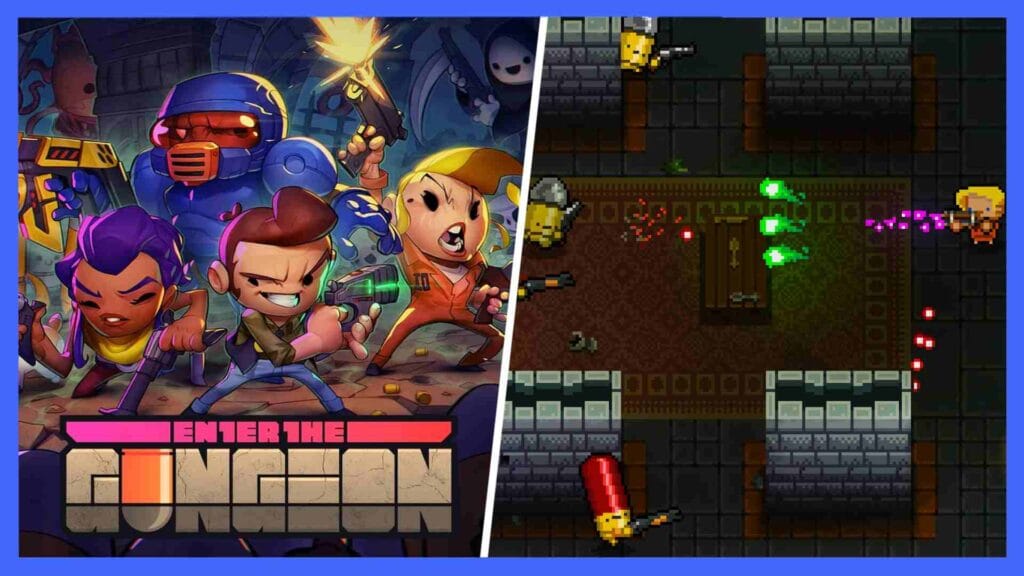
Genre: Top-down bullet-hell roguelike.
Availability: Windows, OS X, Linux, PlayStation 4, Xbox One, Switch.
Enter the Gungeon is the personification of bullet-hell. Where it differs from The Binding of Isaac is that the player never truly becomes over-powered. For the most part, guns make the difference, but they very rarely offer up an almost God-mode run.
The main hook here is player reaction times. Enemies can fill screens with glowing bullet orbs in the blink of an eye, and the player needs to learn patterns, paths, and where is and isn’t safe to stand, lest they become just another victim of the grueling gungeon.
It’s hell, pure hell, but there’s a shred-of-a-glimmer-of-hope that’s enough to keep players coming back for more.
Crypt of the Necrodancer
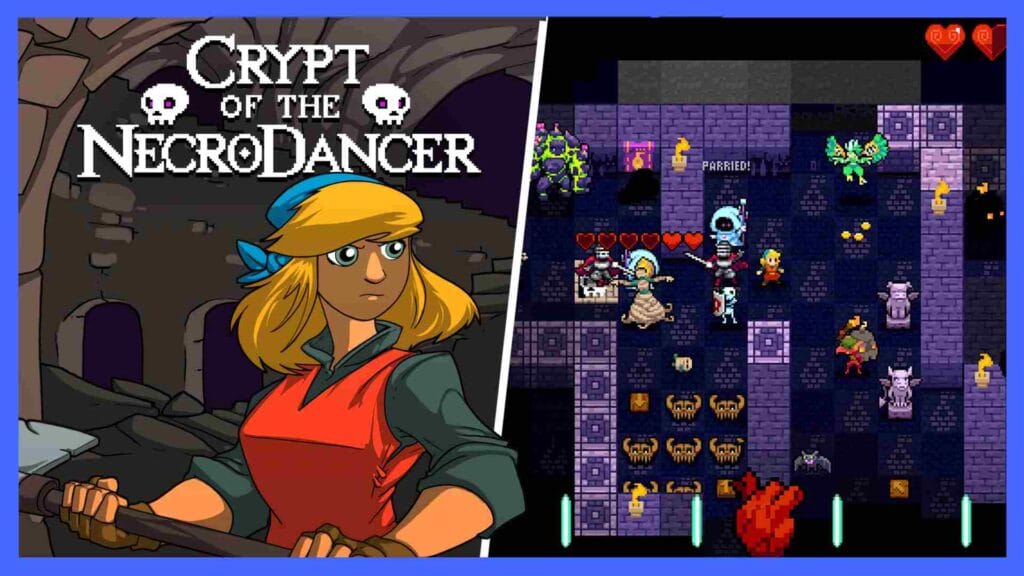
Genre: Top-down 2D roguelike rhythm game.
Availability: Microsoft Windows, OS X, Linux PS4, PS Vita, iOS, Xbox One, Switch, Android.
Imagine playing any top-down game. The W key or up on the controller is always forward, right? Now imagine there’s a song playing and you can only attack or move if you time it to the beat.
Crypt of the Necrodancer is part roguelike, part Zelda, part Rock Band. It’s also one of those games where trying to describe it in written form is a fool’s errand.
It’s tough, and even harder if you got no rhythm. But when everything clicks into place, and swings of the weapon match the beat with perfect precision, there’s a sense of satisfaction like no other. It’s a feeling I can only describe as beating Delerium or Dogma for the first time.
Returnal
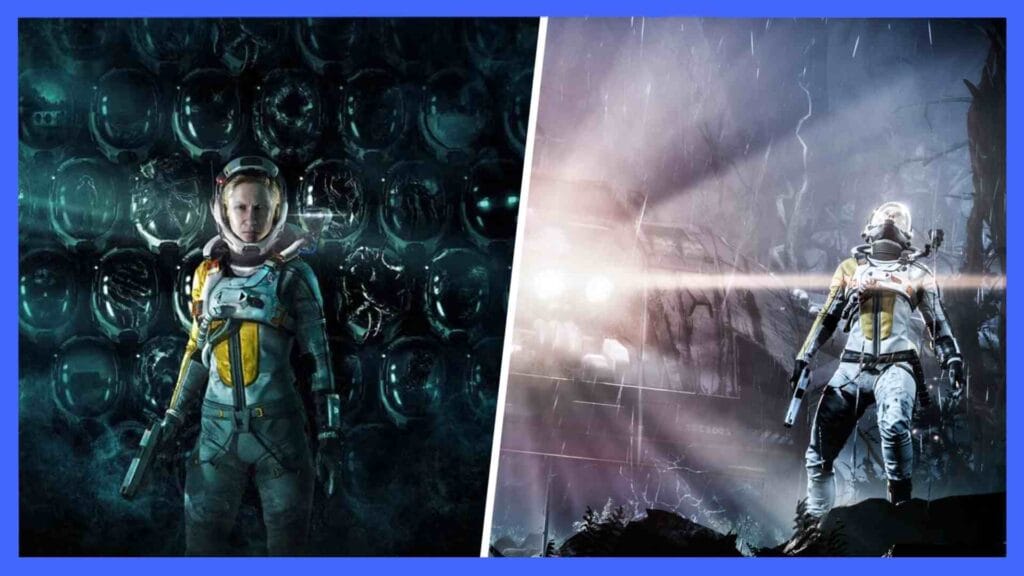
Genre: Third-person shooter roguelike
Availability: PS5
This one’s going to cause a riot but hear me out. What is the Binding of Isaac when you break it down? Precise shots, mastering enemies, grueling boss fights, and satisfaction when you manage to finally clear something that’s been beating you senseless.
All the above also describes Returnal. Yes, it’s a third-person, highly-polished AAA game so on the surface it is very much a different game. But when you break it down to its purest form, it shares a lot of DNA with the Binding of Isaac.
Both require players to master mechanics, both encourage players to poke about the world to discover all its secrets, and both will annihilate you if you slip into auto-pilot.
Delver
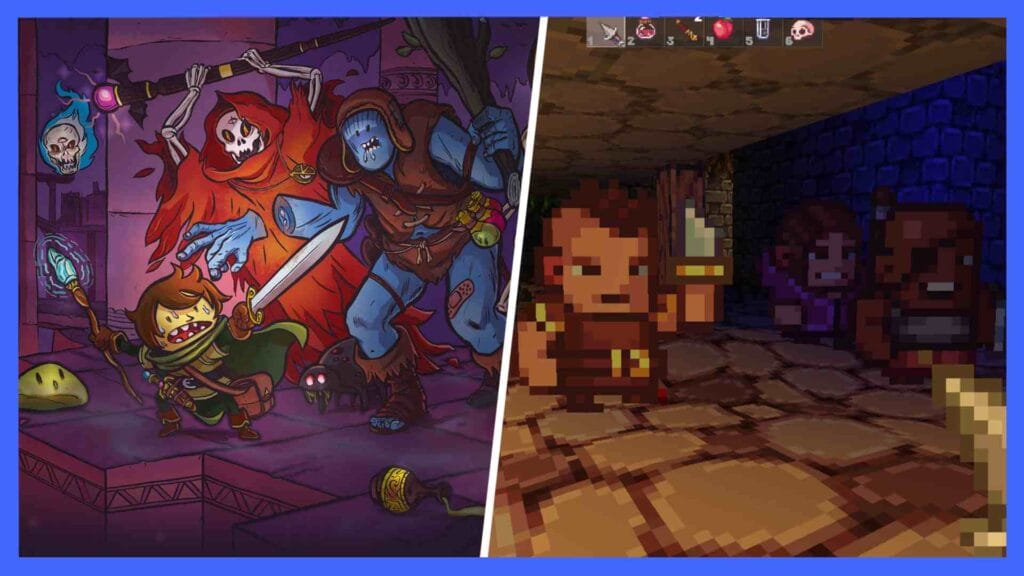
Genre: First-person action roguelike dungeon crawler
Availability: Android, Microsoft Windows, Linux, Mac.
What happens when you take the gorgeous pixel-art style and procedural nature of Binding of Isaac and marry it with the world of Skyrim’s dungeons? That’s essentially the pitch for Delver.
Visually, Delver stuns with the force of a race car. The pixel-art style here is sublime. It’s like a more vibrant Minecraft only with good lighting.
As for gameplay, no two dungeons yield the same run. Players need to be on their toes at all times because every enemy can and will try to off them as quickly as possible.
While Skyrim can be overcome by leveling up and becoming a demigod, Delver requires the player to think, plan, and react accordingly. And if they don’t, it’s back to the title screen they go.
Curse of the Dead Gods
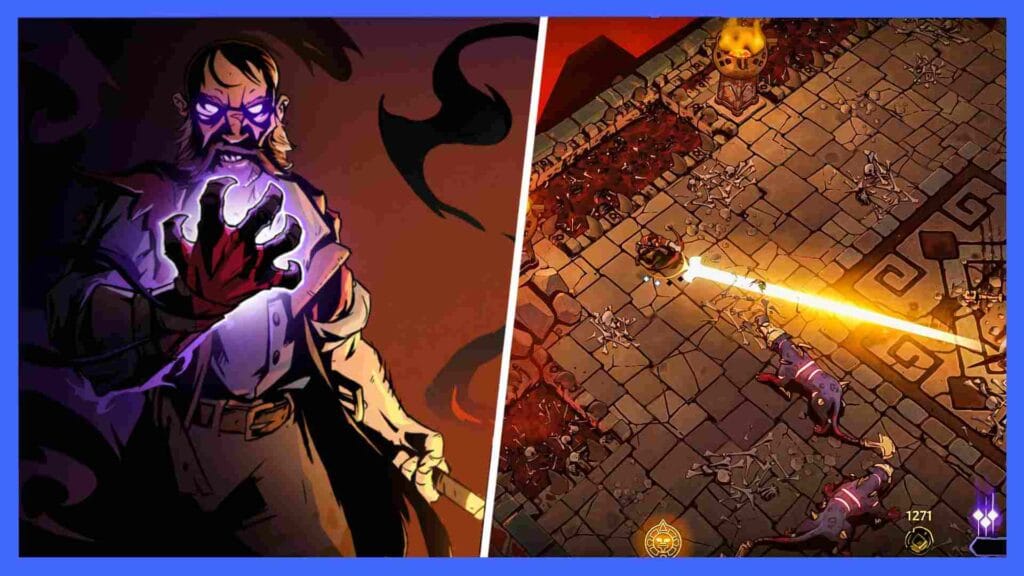
Genre: Isometric skill-based roguelike.
Availability: PlayStation 4, Nintendo Switch, Xbox One, Microsoft Windows.
There’s no getting around the Curse of the Dead Gods and Hades comparison. Both feature an isometric viewpoint similar to the Diablo series, and both feature procedurally generated, tough-as-nails gameplay.
But whereas Hades is for the horny, Curse of the Dead Gods is for those who play Isaac. It’s gloom-ridden, claustrophobic, and got a much stronger Isaac vibe than Hades.
It’s all about avoiding traps, managing curses, and dispatching enemies before they can end your run. If you like Isaac, Hades, or Diablo, Curse of the Dead Gods comes very easy to recommend.
Dead Cells
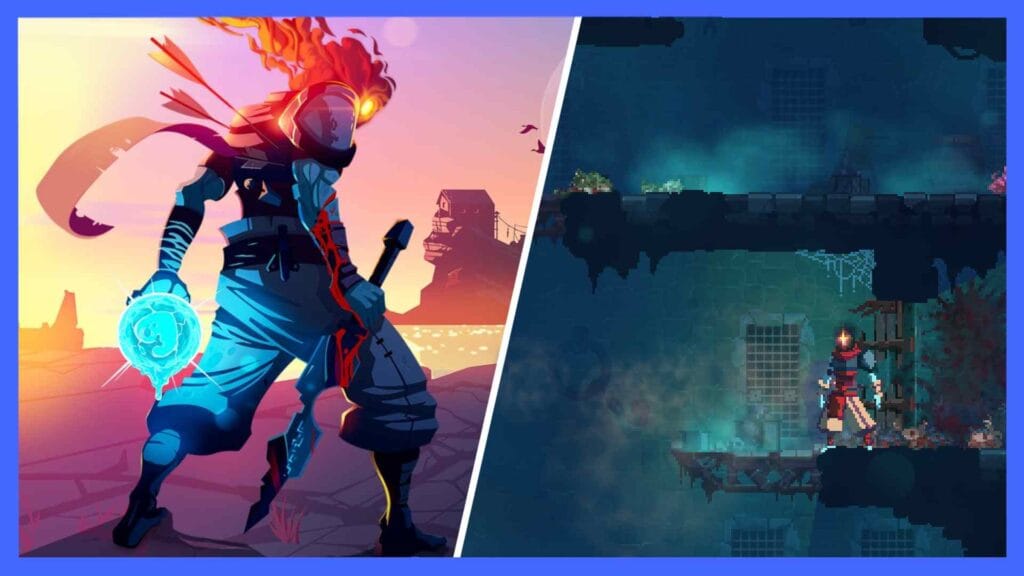
Genre: 2D roguelike platformer.
Availability: Linux, macOS, Microsoft Windows, Nintendo Switch, PlayStation 4, and Xbox One
Dead Cells also made our list of the best games like Street of Rage and we’re sure it’ll feature on many more lists as time goes on.
Dead Cells is like if you took Binding of Isaac, made it a 2D scroller, and amped up the speed to 11. It’s all about finding the right tools for the job, much like Isaac, but whereas Isaac players can brute force their way through, Dead Cells requires skill all the time.
It’s not an Enter the Gungeon level of skill, but understanding the mechanics and working out how to attack safely while remaining hit-free is key to overcoming Dead Cells.
Plus the art style alone is enough to keep players playing. Seriously, it’s pixel-art, but with a more contemporary skin. It’s genuinely lush.
Hades
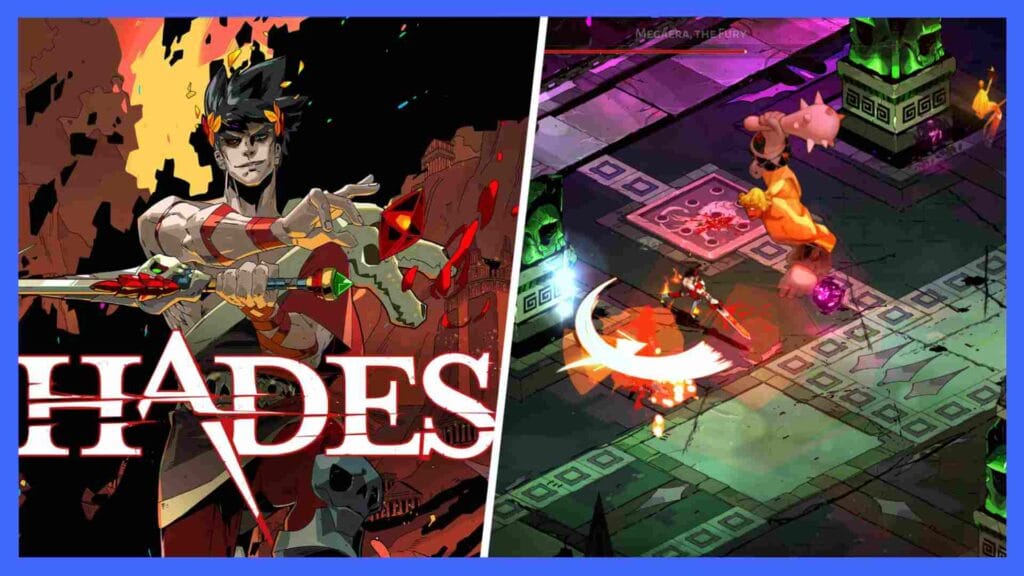
Genre: Horny rogue-like dungeon crawler.
Availability: Windows, macOS, Switch, PS4, PS5, Xbox One, Xbox Series X|S.
Greek Diablo, only horny. That’s Hades in a nutshell. While that doesn’t give anything away, anyone who’s played this game knows exactly what’s up.
For those new to the party, Hades follows the exploits of Hades’ son Zagreus as he attempts to leave hell and find his mother. Normally with games like Isaac, they lack the narrative to keep players engaged. And that’s fine if they don’t! Some games are there to be played.
But with Hades, there’s a mystery to unravel as you die for the hundredth time. It’s like Isaac in that regard – play for the gameplay, stay for the story.
Gameplay here is like a more frenetic Diablo. Mastering weapons is key if you want to survive long enough to reach the top, as is mastering how to dodge.
What makes Hades different from the rest is it’s not a painfully difficult game. You’ll die, lots, but as death brings the chance to buy upgrades and advance the story, the crushing defeat that comes with losing isn’t there either.
Yes, it’s hard. But once you learn the ropes, hanging in there becomes much more achievable.
Never Split the Party
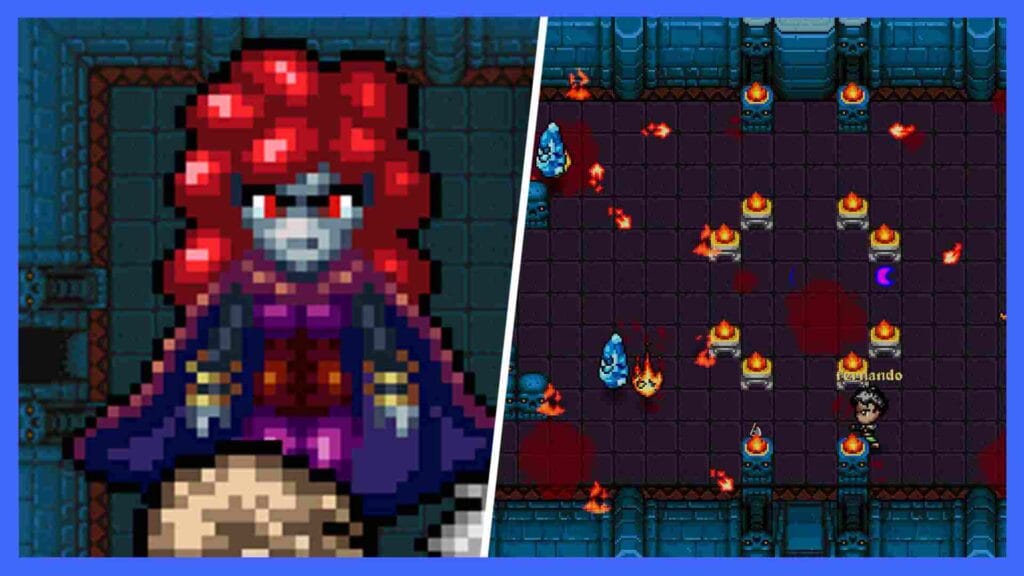
Genre: Top-down social rogue-like.
Availability: Microsoft Windows, Linux, macOS
Never Split the Party is as close to Isaac as you can get before lawyers get involved.
It’s a dungeon crawler, and it can be compared with Zelda quite easily, but instead of going it alone, Never Split the Party lets you venture off with up to three friends.
It also throws in some neat RPG elements in the forms of roles and classes.
Roles are split between one player being in charge of maps, another inventory, a third for health, and the fourth upgrades. It’s a novel way of doing things that’s for sure.
As for classes, which work similar to characters in Binding of Isaac, from the off players have access to the fighter and the cleric and can unlock further classes as they progress.
Although I jest about getting lawyers involved, Never Split the Party and Binding of Isaac both share inspiration with the original Legend of Zelda, and it’s easy to see Never Split the Party as a more modern take on NIntendo’s fabled series, albeit with friends to share in your sufferance.
Spelunky/Spelunky 2
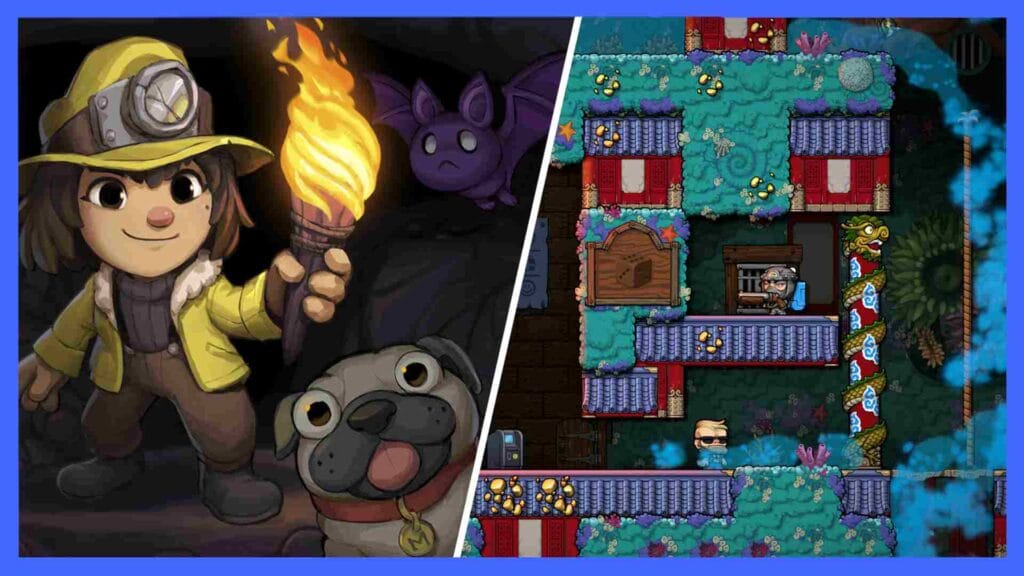
Genre: Cave exploration, treasure-hunting rogue-lite.
Availability: Nintendo Switch, Xbox Series X and Series S, Xbox One, PlayStation 4, Microsoft Windows
Spelunky will make you scream. It’s one of those games when you watch people play, it looks like a child could handle it. But from the moment you pick up the controller, you know you’ve been duped.
The term “everything is trying to kill you” gets thrown around too loosely. Especially with rogue games. But in Spelunky it’s very much true.
Enemies kill you, sure, that’s a given. But have you ever died because a vase fell on you and pushed you into a spike trap? How about a second player trying to help? They’ll kill you as well. And hired hands – the computer-controlled friendly characters you can find throughout the world – those guys are a menace to anxiety.
And yet, when you’re not getting Spelunked, and the game decides to give you a government-issued win, it’s all kinds of satisfying knowing you’ve finally done it.
Just know once you’ve finished celebrating, the next 100 runs are now almost certain to end in horrifying deaths. Them’s the rules.
The Legend of Zelda
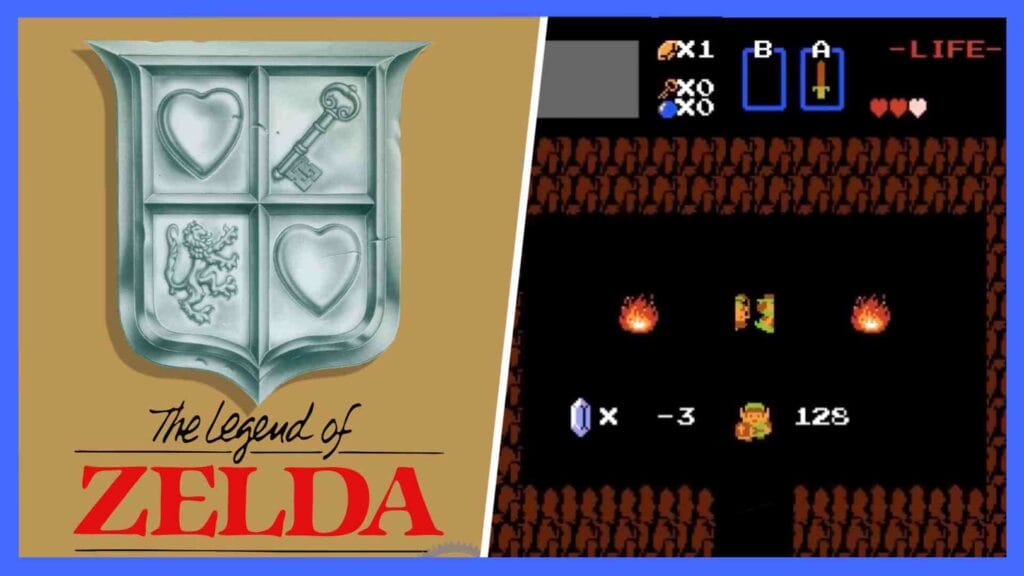
Genre: Action-adventure
Availability: NES, Game Boy Advance.
Originally released in 1986 and designed by Shigeru Miyamoto and Takashi Tezuka, the Legend of Zelda has a lot to answer for.
It launched back when people were still scurrying to figure out what makes a video game popular. In Zelda’s case, it was exploration and the constant threat of death.
The beautiful thing about early Nintendo games is even though they’ve been surpassed visually by modern hardware, pixel-art games age wonderfully. They still look great today. A little square and colourless, sure, but still great.
So if you ever want to play the game that helped inspire the Binding of Isaac, there are still lessons to learn from this retro classic.
The Legend of Bum-Bo
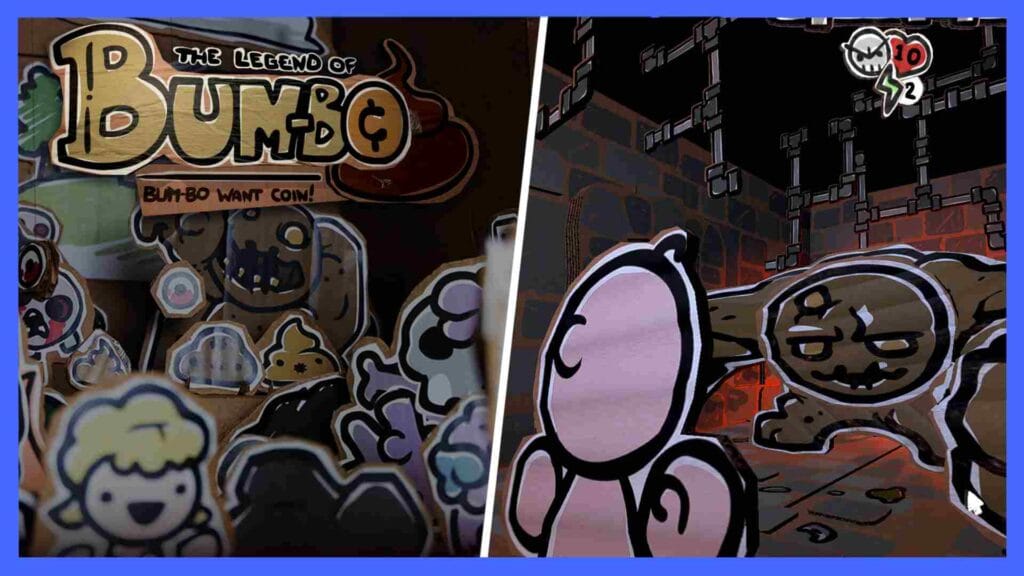
Genre: Puzzle-based deckbuilding roguelike.
Availability: Windows, iOS, Switch, PS5, Xbox Series X|S
We couldn’t not feature the direct prequel to the Binding of Isaac. Designed by Ed McMillen, the man himself behind the Binding of Isaac, and James Interactive, the Legend of Bum-Bo takes the world of Isaac and changes it up.
The result? A morish deckbuilder with that signature McMillen, errm, charm? There’s lots of religious imagery and poo, as you’d expect.
It is a very different game, but being able to go back into that world, and uncover more lore, makes it feel inherently Isaac. If you’re a massive Isaac nut and have yet to check it out, it’s absolutely worth it. It won’t be for everyone, but if you’re always looking to absorb more Isaac, it scratches that itch.

